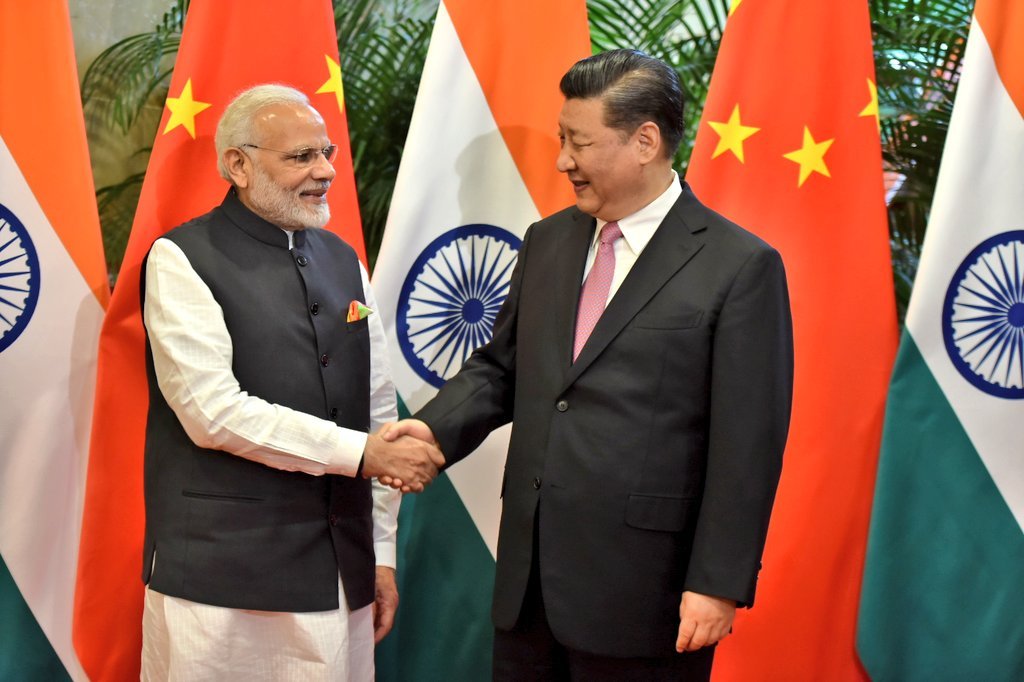China and India Hopeful for Normalizing Relations Through Peaceful Dialogue Amid Border Tensions and Differences
Indian Prime Minister Narendra Modi has emphasized the importance of fostering strong relations with China, stating that differences between the two nations are natural but must not escalate into conflicts. He stressed that both countries should remain vigilant to prevent disputes from turning into hostilities.
China and India Hopeful for Normalizing Relations Through Peaceful Dialogue Amid Border Tensions and Differences
China and India Hopeful for Normalizing Relations Through Peaceful Dialogue Amid Border Tensions and Differences
Indian Prime Minister Narendra Modi has emphasized the importance of fostering strong relations with China, stating that differences between the two nations are natural but must not escalate into conflicts. He stressed that both countries should remain vigilant to prevent disputes from turning into hostilities.
Border Tensions and Recent Talks
In an interview with American podcaster Lex Fridman on March 16, Modi acknowledged that the 2020 border clashes in Ladakh had caused tensions in India-China relations. However, after recent discussions with Chinese President Xi Jinping, he noted that the border situation is moving toward normalization.
He stated, "The 2020 border clash created significant tension between our two countries. However, after my recent meeting with President Xi, the situation has improved considerably. We are now working to restore conditions to what they were before 2020."
Xi-Modi Meeting in Russia
Last year, Modi and Xi Jinping met after five years on the sidelines of the BRICS summit in Kazan, Russia. During this meeting, both leaders reaffirmed their commitment to the India-China agreement on patrolling and troop withdrawal along the Line of Actual Control (LAC) in eastern Ladakh and instructed their respective officials to resume bilateral dialogues.
Modi explained, "Even in families, differences of opinion arise. But instead of turning those differences into disputes, we should resolve them through discussion and diplomatic efforts. Our relationship should remain strong and continue to develop in the future."
"India and China Have No History of Direct Conflict"
Modi stressed that India and China do not have a history of direct conflicts. Instead, he highlighted that both ancient civilizations have learned from each other and contributed significantly to global development.
He said, "Both countries are part of ancient civilizations that have exchanged knowledge for centuries. Historical records indicate that at one point, India and China collectively accounted for 50% of the world's GDP. This demonstrates how crucial our mutual relations are."
Progress in Resolving Border Tensions
Since the deadly Galwan Valley clash in May 2020, relations between India and China have deteriorated. However, after years of military standoff, India reached a significant agreement with China on October 21 last year, concerning patrolling protocols along the eastern Ladakh border.
Expressing optimism, Modi stated, "It is true that we have border disputes, but over time, trust and positivity will be restored. However, normalization will take some time, as there has been a five-year gap in our engagement."
The Future of Bilateral Relations
Experts believe that the Modi-Xi meeting could pave the way for a new chapter in India-China relations. Given the economic and strategic importance of both nations, resolving differences and strengthening cooperation will be mutually beneficial.
Beyond border de-escalation, India and China are also keeping communication channels open for enhancing trade and diplomatic ties. Modi's recent remarks indicate a strong possibility of strengthening bilateral relations in the future.










